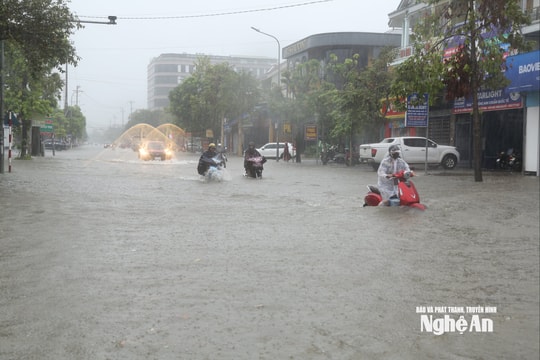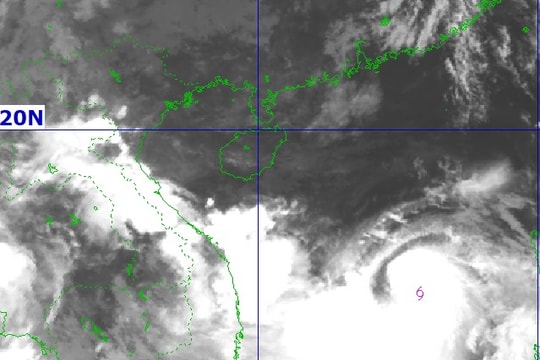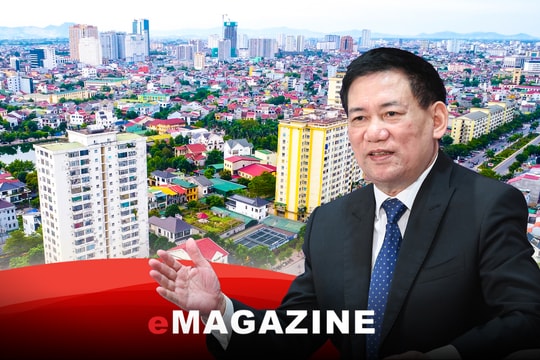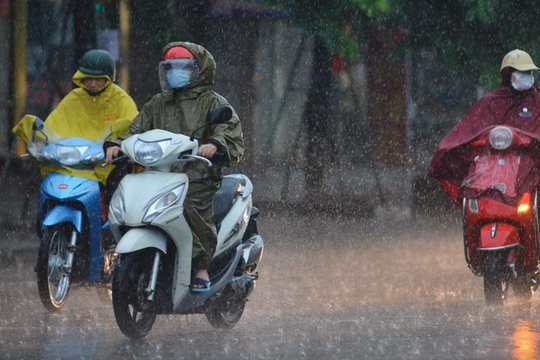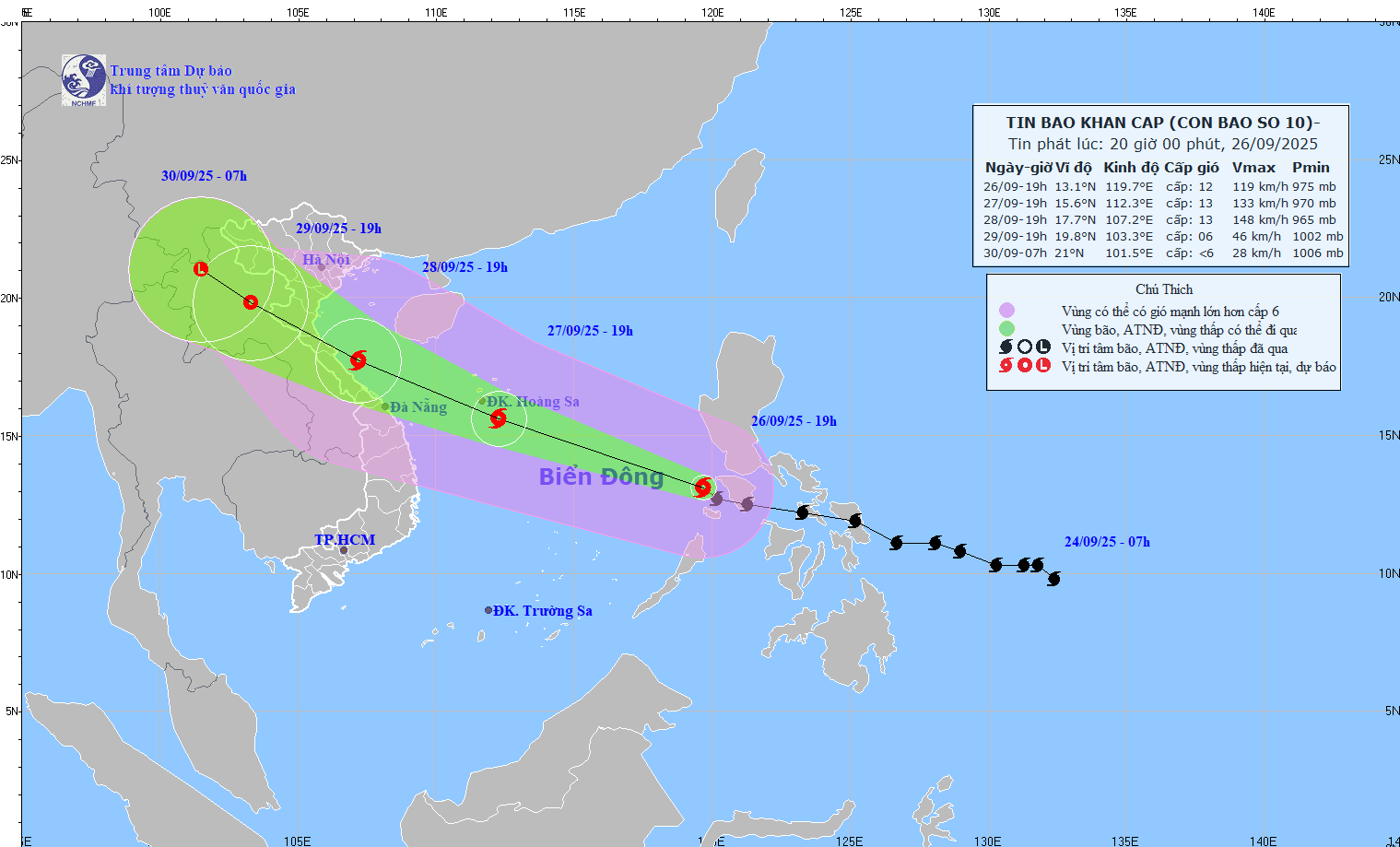What should people do when they are 'terrorized' into debt collection even though they did not borrow money?
(Baonghean.vn) - When being harassed or threatened, people need to save phone numbers, messages, recordings, and images as evidence, then report to the police for resolution.
Criminal proceedings may be pursued.
For many days now, Ms. Pham Thi Truong Giang - Principal of Le Mao Primary School (Vinh City), and many teachers in the school have been continuously "terrorized" by debt collectors. Although none of the teachers and staff of the school have borrowed money. In the first calls, they impersonated parents, falsely accused teachers of beating students, and then began to insult and curse. "Later, they revealed their intention to pressure the brother-in-law of a female teacher in the school to collect debt," Ms. Giang said.
Not only did they call the principal and teachers to harass them, they also took photos of Ms. Giang and put them on the altar. In addition, the debt collectors also impersonated the teacher whose brother-in-law owed them money and called two gas dealers in Vinh City to ship two gas cylinders to the middle of the school to threaten them. “We were really confused. No one borrowed money and was also implicated. We didn’t know how to handle it,” Ms. Giang said.
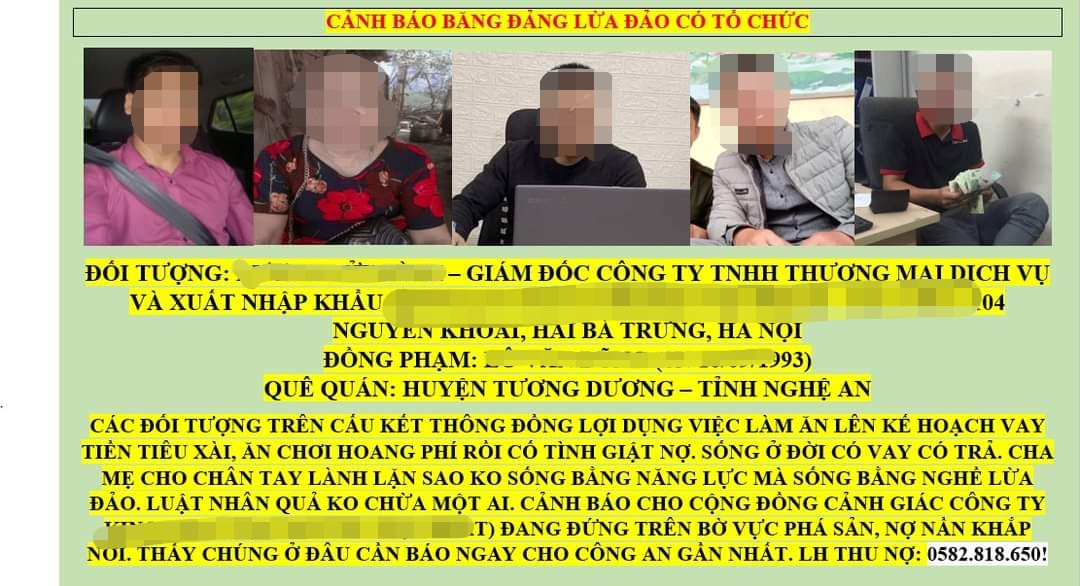 |
| A resident in Tuong Duong district was defamed on social media even though he did not borrow money. Photo: TH |
In Anh Son district, Mr. Doan Van Thanh - Head of the district's Department of Education and Training said that debt collectors even took a photo of him and his friend's family on his personal Facebook page and falsely accused him of having an affair with his friend's wife. The reason was that a female teacher in the district borrowed money from a finance company overdue but had not paid it back.
Talking to Nghe An Newspaper reporters about this situation, a lawyer in Vinh City said that victims of harassment should save phone numbers, recordings, information, and images of messages with threatening, debt-requesting, and debt-collecting content and send them along with documents to organizations and individuals lending debt to complain about debt-requesting and debt-collecting measures against those who are not obligated to pay their debts. At the same time, they can send a petition with evidence to the State Bank Branch to request resolution of violations in the banking sector or send a report or denunciation to the police or the Department of Information and Communications to receive support in handling the act of using telecommunications services to threaten, harass, and insult the honor, dignity, and reputation of others.
According to this lawyer, the act of calling or texting to force an individual or organization to pay an undeclared debt is a sign of the crime of "Extortion of property" as prescribed in Article 170 of the 2015 Penal Code (amended and supplemented in 2017). This act has a prison sentence of 1 to 20 years. In case the person calls or texts not for the purpose of extorting property but for the purpose of seriously insulting the dignity and honor of another person, this act constitutes the crime of "Humiliating others" as prescribed in Article 155 of the 2015 Penal Code (amended and supplemented in 2017). Using the telecommunications network to humiliate others will fall under Clause 2 or Clause 3 of this article, with a prison sentence of 3 months to 5 years depending on the nature, extent of the act and the consequences caused.
In addition, the case of calling to slander an individual or organization for property appropriation constitutes the crime of "Slander" according to the provisions of Article 156 of the Penal Code 2015 (amended and supplemented in 2017), with a prison sentence of 3 months to 7 years depending on the nature, extent of the slander and the consequences. In the case of similar acts as above but not to the extent of criminal liability, the violator will be administratively sanctioned according to the provisions of Point g, Clause 3, Article 102 of Decree (No. 15/2020/ND-CP) dated February 3, 2020 of the Government regulating administrative sanctions in the fields of post, telecommunications, radio frequencies, information technology and electronic transactions. This act is subject to a fine of 10 to 20 million VND.
People need to be vigilant
According to the reporter's research, when borrowing money in the form of credit, the borrower must agree to allow the lender to use and access the personal phone contacts or the list of friends on social networks through the application (app). When the borrower does not pay on time or loses contact, the lender will use this contact data to text or call the numbers in the contact list to pressure them to pay the debt, regardless of who that person is.
In addition, in reality, many people who have lost their identity cards (ID cards) and citizen identification cards (CCCD), or even just had their photos taken, are at risk of becoming debtors even though they did not borrow money. Recently, the police in some localities in Nghe An have also issued warnings about this situation. Accordingly, currently, in some communes and wards, a group of people has appeared at each household asking to take photos of their ID cards and then paying people 100,000 VND for each ID card/CCCD taken.
The QR code and chip on the CCCD card contain a lot of personal information that high-tech criminals thoroughly exploit for their own benefit. However, many citizens still "carelessly" share their CCCD images on social networks. Such sharing behavior poses a risk of revealing personal information. Just based on the QR code or information printed on the CCCD card, you can clearly know the personal information of citizens. Bad guys can use CCCD or ID card images shared online to register for a bank account, or borrow money on an app...
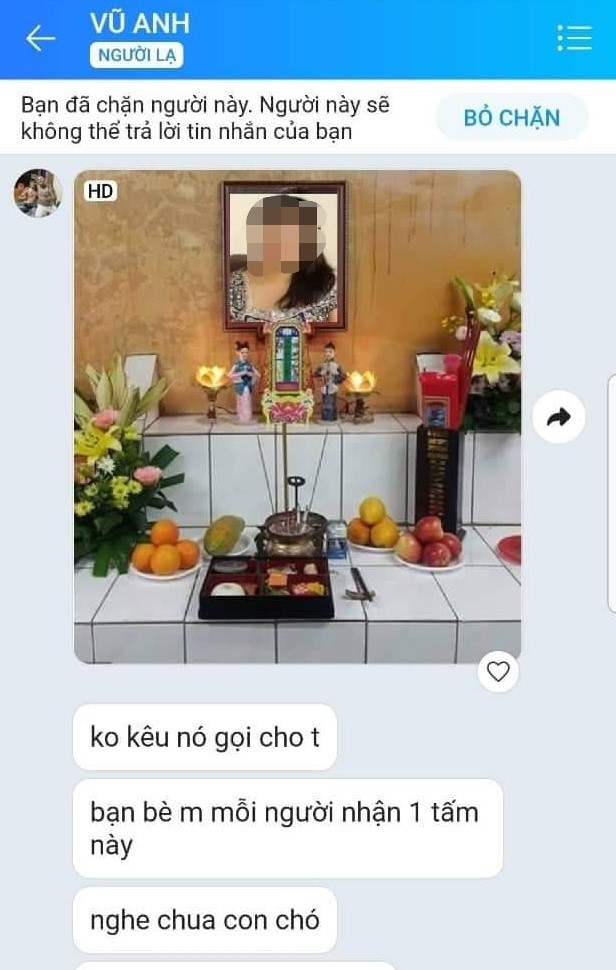 |
| A principal's photo was photoshopped and put on the altar even though she and her teachers did not borrow any money. Photo: TH |
Currently, there are many online loan applications that only require taking a photo of the front and back of the ID card or CCCD to quickly resolve the loan contract and disburse the loan. Therefore, bad guys often find ways to get other people's personal information, then take photos and send them to these applications to borrow money to appropriate. These online loan applications have the advantage of simple procedures and quick disbursement, but the biggest disadvantage is that they skip the verification step, or if they do verify, the verification process is very sketchy, thereby creating loopholes and gaps for other subjects to have the opportunity to appropriate money through the loan contract.
The police agency recommends that all people be vigilant, do not share images of ID cards and CCCDs on social networks, do not allow subjects to take photos of ID cards and CCCDs, and immediately report to the nearest police agency for timely handling if this situation occurs.
Speaking to Nghe An Newspaper reporters, the leader of the Department of Education and Training of Nghe An province said that the unit has also advised all teachers and employees in the industry to carefully consider when borrowing unsecured loans through online applications. For teachers who have borrowed money, it is necessary to determine "if you borrow, you must pay back", to avoid letting debt affect other groups and individuals.

